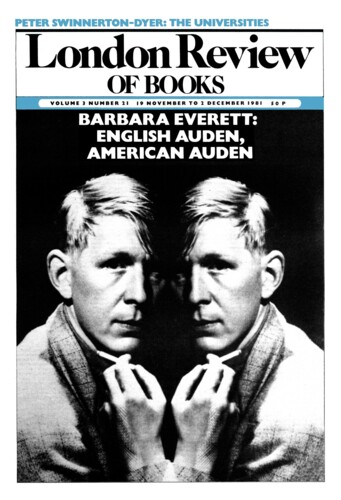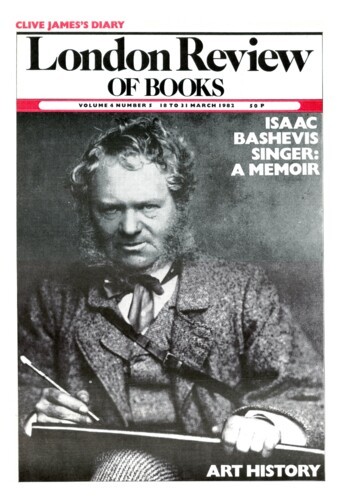Glyn Daniel is the sort of scholar for whom the word ‘doyen’ might have been invented – what could be more archetypally doyenish than to be honoured, as Professor Daniel has lately been, with a festschrift prefaced by the Prince of Wales? A Short History of Archaeology is the 100th volume in the Thames and Hudson ‘Ancient Peoples and Places’ series which he has edited since its inception only 25 years ago – a notable striking-rate by any standards. It is at least his fourth book on the subject, and amounts essentially to a shortened and illustrated version of his A Hundred and Fifty Years of Archaeology, published in 1975. It blends a roll-call of archaeology’s great heroes and great moments with a panoramic survey of what he summarises at the end as its ‘Great Themes’. The familiar great names are there, of course, as well as some that are less familiar, though no less important: Isaac de la Peyrère, whose argument of 1655 that flints were the work of primitive human beings got him into serious trouble with the Inquisition; Michele Mercati, who reached the same correct conclusion in the 16th century, though his case was not published until the 18th; Thomsen Jefferson, famous enough in other contexts, but also the organiser of ‘the first scientific excavation in the history of archaeology’ (in Wheeler’s words); J.J.A. Worssae, who proved Thomsen’s three-age system (stone, bronze, iron) by excavation in the field; Lewis Morgan, whose classification of human development into seven ‘ethnic periods’ from ‘lower savagery’ (up to the discovery of fire) to ‘civilisation’ (from the alphabet onwards) strongly influenced Engels; and, at the other extreme, Giovanni Battista Belzoni, who graduated from being a circus strong man to tomb-robbing in Egypt on a scale which makes Elgin seem respectable; or Augustus Le Plongeon, who pursued his conviction of the link between Near Eastern and Central American civilisations to the point of suggesting that Christ’s last words were Mayan for ‘Now, now, sinking, black ink over my nose.’
Glyn Daniel is the sort of scholar for whom the word ‘doyen’ might have been invented – what could be more archetypally doyenish than to be honoured, as Professor Daniel has...





